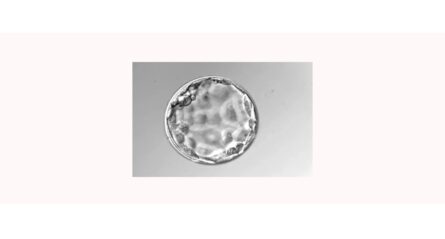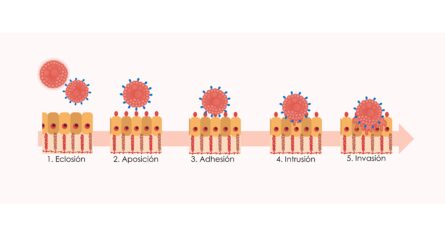The embryo establishes a "dialogue" with the maternal endometrium in the first days of gestation, mainly during implantation
What is embryo implantation?
The embryonic implantation is the process by which the embryo is installed in the maternal endometrium. For implantation to occur, it must have reached the stage of blastocyst< /a> by correct divisions in about 5-6 days from fertilization. In addition, 2 parts must be differentiated: the internal cell mass (it will form the fetus) and the trophectoderm (it will form the placenta).

In addition to the blastocyst, for the embryo to implant correctly it is essential that the process takes place during the implantation window. This is a period of about 4 days during which changes occur that favor the implantation of the embryo. In most women, the implantation window occurs between days 20 and 24 of the menstrual cycle.
Importance of the endometrium in assisted reproduction
The endometrium, tissue that lines the inside of the uterus, is the “basket” that protects the embryos during embryo implantation. At first, the embryo reaches the endometrial cavity (apposition). Later, it comes into contact with the endometrium (adhesion), and finally, invasion of the embryonic trophoblast occurs.

In reproductive treatment cycles, we seek to ensure that the endometrium is in an optimal state for implantation. To do this, we take advantage of the woman's own ovulatory cycle, or if necessary, using exogenous hormones (estrogens and progesterone) to ensure that the endometrium is at maximum receptivity for embryo implantation.
Relationship between endometrium and embryo
When we talk about the maternal-embryonic dialogue we refer to those messages that are established in the early stages of pregnancy, mainly during embryonic implantation.
These messages are complex, like life, where neuro-endocrine-metabolic and immunological mediators are mixed. This correct balance and coordination will depend on whether or not the mother allows the implantation. It is what we understand as maternal tolerance.
Sometimes, the messages emitted by the embryo are not correct, as would be the case of messages emitted by abnormal embryos. In this situation, the logical maternal response is to not allow abnormal embryos to implant.
The problem appears when the maternal response continues to be abnormal, despite the emission of correct messages by the embryo. We talk about those cases of Implantation Failures.

To date, we study and investigate these complex mediators involved, as well as the interaction between them, identifying anomalous responses or an aberrant predisposition to the normal process of implantation, of tolerance.
This study is complex, individualizedand tending to find a justification for the error in the maternal-embryonic dialogue and, since the problems can be very varied, the therapeutic strategies will be very different between patients.





No hay comentarios